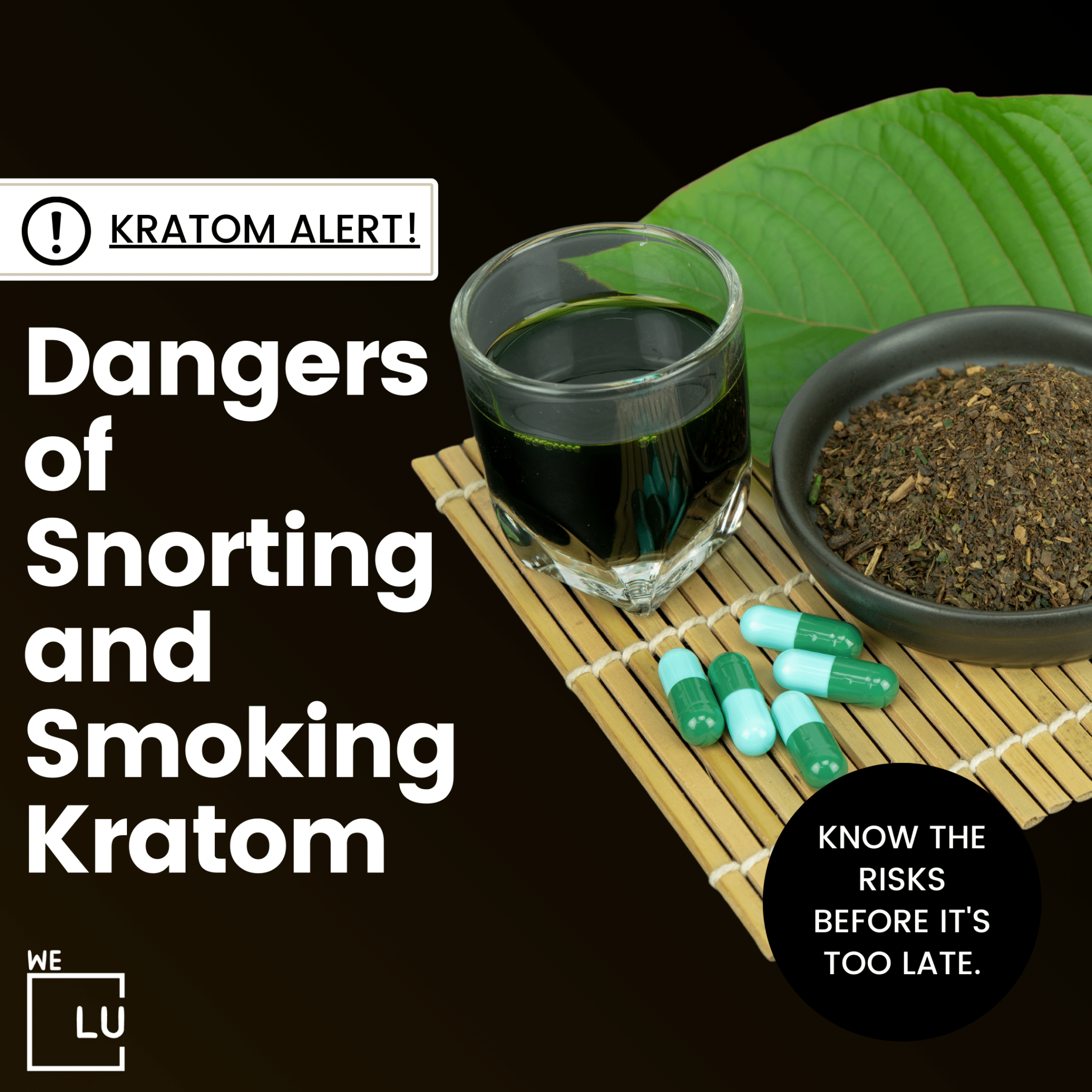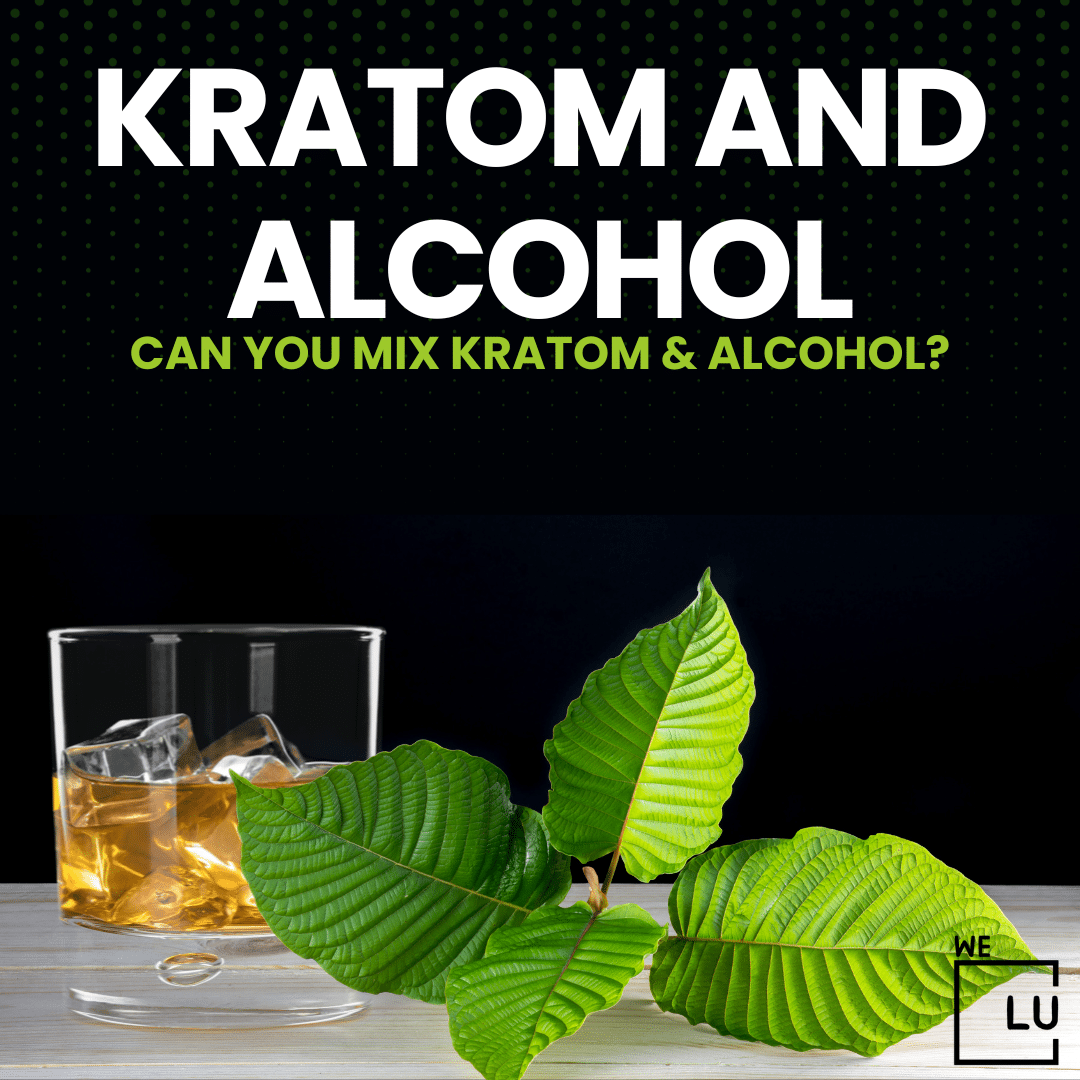Navigating the legal landscape surrounding Kratom in the United States can be a complex and ever-evolving challenge. Is Kratom legal? Kratom’s legality varies at the state level, with some states imposing restrictions or outright bans on its use. Given the regulatory uncertainty and the potential risks associated with Kratom, individuals seeking information or assistance with Kratom use are encouraged to stay informed about local laws and regulations.
If you or someone you know is grappling with Kratom addiction and in need of support, contact We Level Up CA, a resource dedicated to providing assistance and guidance in overcoming substance abuse challenges. Remember, understanding the legal framework is essential, but seeking help for addiction is equally crucial for a healthier and safer path forward.
What Is Kratom?
Kratom, scientifically known as Mitragyna speciosa, is a tropical evergreen tree native to Southeast Asia, particularly in Thailand, Malaysia, Indonesia, and Papua New Guinea. The leaves of the Kratom tree have been traditionally used for centuries in folk medicine for their stimulant and opioid-like effects. Kratom contains alkaloids, with mitragynine and 7-hydroxy mitragynine being the primary psychoactive compounds.
In low doses, Kratom may act as a stimulant, providing increased energy and alertness, while in higher doses, it can have sedative and analgesic (pain-relieving) effects. Kratom is often consumed by chewing the leaves, brewing them into tea, or in the form of capsules or powder.
It has gained popularity in various parts of the world, including the United States, where some individuals use it for self-medication or recreational purposes. However, Kratom’s safety and potential for dependence and addiction have raised concerns, leading to regulatory scrutiny in several countries.
Is Kratom Legal?
In the United States, the legal status of Kratom is complex and varies by state. It is legal in many states, but several have imposed restrictions or outright bans. The regulatory landscape is subject to change, so check the specific laws in your state for the most up-to-date information.
In other countries, such as some European nations, Kratom may be legal or subject to certain restrictions. In Southeast Asia, where Kratom is native, its legal status can vary from country to country.
States That Have Outlawed Kratom
The following states have banned Kratom or classified it as a controlled substance:
- Alabama.
- Arkansas.
- Indiana.
- Rhode Island.
- Vermont.
- Wisconsin.
States With Restrictions For Kratom Use
Several U.S. states have imposed regulations or restrictions on the sale and use of Kratom without outright banning it. These restrictions may include age restrictions, labeling requirements, or other measures to ensure consumer safety. However, these regulations can change, and new laws may have been enacted.
States with restrictions or regulations on Kratom use may include:
- Florida: In Florida, Kratom is legal for people over 18 years old but is not allowed to be sold in convenience stores.
- Georgia: Kratom is legal for individuals over 18 years old.
- Illinois: Kratom is legal for individuals over 18 years old.
- New Hampshire: Kratom is legal for individuals over 18 years old.
- North Carolina: Kratom is legal for individuals over 18 years old.
- Oregon: Kratom is legal for individuals over 18 years old.
- Mississippi: Kratom is legal for individuals over 18 years old.
- South Carolina: Kratom is legal for individuals over 18 years old.
- Tennessee: Kratom is legal for individuals over 21 years old, but synthetic forms are banned.
International Kratom Legality
Kratom’s legality varies widely across different countries, and the situation is subject to change due to evolving regulations and policies. Always verify the current regulations before using or importing Kratom in any specific country. Here is a general overview of Kratom legality in various regions:
- Asia: Kratom is native to Southeast Asia, and its legal status varies among countries in the region. In some countries like Thailand and Malaysia, Kratom is illegal or heavily regulated due to concerns about abuse and dependence.
- Europe: The legal status of Kratom in Europe varies by country. Some countries, such as the United Kingdom, have not classified Kratom as a controlled substance, while others, like Sweden, have imposed restrictions or bans.
- North America: In the United States, the legal status of Kratom varies by state, as mentioned earlier. In Canada, Kratom is legal for personal use, but its sale for human consumption is prohibited.
- Australia: Kratom is illegal for human consumption in Australia, and it is classified as a Schedule 9 substance.
- New Zealand: Kratom is currently unregulated in New Zealand, but its legal status may be subject to change.
- Africa and South America: Information on Kratom legality in many countries in these regions may be limited, and it’s advisable to check with local authorities for the latest regulations.

Skip To:
Learn More:
- Kratom Side Effects Long-Term And Short-Term Side Effects.
- How Long Does Kratom Last In Your System? Kratom Half Life.
- Is Kratom An Opioid? Can You Use Kratom For Opioid Withdrawal?
- Risks And Effects Of Kratom Addiction. Is Kratom Addictive?
- Kratom Withdrawal Symptoms, Timeline, Dangers, And Detox
- Kratom Overdose Symptoms, Factors, And Treatment.
Why Is Kratom Illegal In Some Place But Not Others?
The legality of Kratom varies from one place to another due to a combination of factors, including cultural, historical, medical, and regulatory considerations. The reasons for Kratom being illegal in some places but not others are complex, and they can include the following factors:
- Cultural and Traditional Views: In the regions where Kratom is indigenous, such as Southeast Asia, its use has a long history in traditional medicine and cultural practices. Some countries may have a more accepting view of Kratom due to its cultural significance, while negative perceptions may influence others.
- Medical and Scientific Understanding: The scientific community is still studying Kratom, and there is ongoing research to understand its potential benefits and risks. In places where there is a lack of scientific consensus or where concerns about safety and abuse potential are high, regulatory bodies may be more inclined to restrict or ban Kratom.
- Public Health Concerns: Some places may restrict or ban Kratom due to perceived public health risks. Concerns may include the potential for abuse, dependence, and adverse effects on health. Regulatory bodies may take action to protect public health based on available information and perceived risks.
- Regulatory Policies: Different countries and regions have varying approaches to regulating substances. Some may have more stringent regulatory frameworks that categorize Kratom as a controlled substance, while others may adopt a more permissive stance. Local attitudes, political considerations, and perceived societal impact influence regulatory decisions.
- International Cooperation: Some countries may align their regulatory decisions with international agreements and conventions. If an international body classifies Kratom as a controlled substance, some countries may follow suit to comply with international obligations.
- Public Opinion and Advocacy: public perception and advocacy efforts can also play a role in shaping the legal status of Kratom. Public opinion may influence regulatory decisions in some places, and advocacy groups may work to promote or restrict its use.
The legal status of Kratom is dynamic and subject to change. As scientific research progresses and more information becomes available, regulations may be adjusted accordingly. Additionally, public and political attitudes can influence the legal landscape surrounding Kratom. Individuals should stay informed about the legal status of Kratom in their specific location and be aware of any regulatory changes.

Get Your Life Back
Find Hope & Recovery. Get Safe Comfortable Detox, Addiction Rehab & Dual Diagnosis High-Quality Care.
Hotline (855) 695-1160FDA And Kratom Legality
The U.S. Food and Drug Administration (FDA) has expressed concerns about the safety of Kratom and has not approved it for any medical use. The FDA has issued warnings about the potential risks associated with Kratom consumption, including concerns about its addictive properties, potential for abuse, and the risk of adverse effects such as seizures, liver damage, and death.

The FDA has taken various actions to address these concerns, including issuing import alerts to prevent the entry of certain Kratom products into the U.S. market. Additionally, the FDA has recommended that consumers avoid using Kratom and has raised awareness about the potential dangers associated with its use.
The FDA does not regulate Kratom as a dietary supplement, and the agency has not recognized any therapeutic benefits of Kratom. However, the regulatory status of Kratom in the United States is complex. It varies at the state level, with some states imposing restrictions or outright bans on its sale and use.
The FDA’s stance on Kratom is based on its evaluation of available scientific evidence and concerns about the potential risks to public health. Individuals should be aware that the legal and regulatory status of Kratom can change, and it’s advisable to check with local authorities and stay informed about any updates or changes in regulations.
Get Help. Get Better. Get Your Life Back.
Searching for an Accredited Drug and Alcohol Rehab Centers in Near You?
Even if you have failed previously and relapsed, or are in the middle of a difficult crisis, we stand ready to support you. Our trusted behavioral health specialists will not give up on you. When you feel ready or just want someone to speak to about therapy alternatives to change your life call us. Even if we cannot assist you, we will lead you to wherever you can get support. There is no obligation. Call our hotline today.
FREE Addiction Hotline – Call 24/7Benefits Of Kratom
While the medical and scientific communities are still researching Kratom, some users claim certain benefits from its consumption. These reported benefits are based on anecdotal evidence, and individual responses can vary. Some potential benefits of Kratom, as reported by users, include:
- Pain Relief: Kratom is often used by individuals seeking relief from chronic pain conditions. Some users claim that Kratom’s analgesic (pain-relieving) properties can be effective in managing various types of pain.
- Mood Enhancement: Kratom is reported by some users to have mood-enhancing effects. It may promote a sense of well-being, relaxation, and improved mood.
- Increased Energy and Focus: In lower doses, Kratom is said to have stimulating effects, providing users with increased energy, alertness, and concentration.
- Anxiety and Stress Relief: Some individuals use Kratom to alleviate symptoms of anxiety and stress. It is claimed to have calming effects that may help in relaxation.
- Opioid Withdrawal Support: Some people have reported using Kratom to manage symptoms of opioid withdrawal. Its effects on opioid receptors have led to speculation about its potential role in opioid withdrawal symptom relief.

Approach these reported benefits with caution, as scientific research on Kratom is still in its early stages, and the safety and efficacy of Kratom for various uses are not well-established. Additionally, the potential risks and side effects associated with Kratom use, as highlighted by regulatory bodies like the FDA, should be considered.
Individuals considering the use of Kratom for any purpose should consult with healthcare professionals and be aware of the legal status and potential risks associated with Kratom in their specific location. The lack of regulatory oversight and standardized dosages further underscores the importance of caution when using Kratom.
Comfortable Facilities & Amenities
High-Quality Addiction & Mental Health Rehabilitation Treatment
Rehab Centers TourRenowned California Addiction Center. Serene Private Facilities. Inpatient rehab programs vary.
Addiction Helpline (855) 695-1160Proven recovery success experience, backed by a Team w/ History of:
15+
Years of Unified Experience
100s
5-Star Reviews Across Our Centers
10K
Recovery Success Stories Across Our Network
- Low Patient to Therapist Ratio
- Onsite Medical Detox Center
- Comprehensive Dual-Diagnosis Treatment
- Complimentary Family & Alumni Programs
- Coaching, Recovery & Personal Development Events
Dangers Of Kratom
While some individuals report positive effects from using Kratom, one must be aware of potential dangers and risks associated with its consumption. The scientific understanding of Kratom’s safety profile is limited, and the U.S. Food and Drug Administration (FDA) has raised concerns about its use. Some potential dangers and risks of Kratom include:

- Addiction and Dependence: Kratom contains alkaloids that can activate opioid receptors in the brain, leading to the potential for addiction and dependence. Regular and prolonged use of Kratom may result in tolerance, requiring higher doses to achieve the desired effects.
- Withdrawal Symptoms: Individuals who abruptly stop using Kratom after regular use may experience withdrawal symptoms, which can include irritability, insomnia, muscle aches, runny nose, and mood swings. These symptoms can be similar to those associated with opioid withdrawal.
- Adverse Effects on Health: There have been reports of adverse health effects associated with Kratom use, including nausea, vomiting, constipation, itching, and, in rare cases, seizures. Long-term use may also pose risks to liver health.
- Potential for Contamination: Kratom products, especially those obtained from unregulated sources, may be contaminated with other substances, including heavy metals, bacteria, and other harmful compounds.
- Lack of Standardization: Kratom products are not regulated by the U.S. FDA for safety, quality, or effectiveness. This lack of standardization means that the concentration of active compounds can vary widely between products, and there is a risk of inconsistent and unpredictable effects.
- Interaction with Medications: Kratom may interact with other medications, potentially causing adverse reactions. Individuals taking prescription medications should consult with healthcare professionals before using Kratom.
- Regulatory Uncertainty: The legal status of Kratom is subject to change, and regulatory scrutiny may lead to restrictions or bans in certain jurisdictions. Users should be aware of and comply with local laws regarding Kratom.
World-class, Accredited, 5-Star Reviewed, Effective Addiction & Mental Health Programs. Complete Behavioral Health Inpatient Rehab, Detox plus Co-occuring Disorders Therapy.
CALL (855) 695-1160End the Addiction Pain. End the Emotional Rollercoaster. Get Your Life Back. Start Drug, Alcohol & Dual Diagnosis Mental Health Treatment Now. Get Free No-obligation Guidance by Substance Abuse Specialists Who Understand Addiction & Mental Health Recovery & Know How to Help.
The 4 Benefits of a Drug-Free Lifestyle
Experience Transformative Recovery at the We Level Up California Treatment Center.
See our authentic success stories. Get inspired. Get the help you deserve.



Start a New Life
Begin with a free call to an addiction & behavioral health treatment advisor. Learn more about our dual-diagnosis programs. The We Level Up treatment center network delivers recovery programs that vary by each treatment facility. Call to learn more.
- Personalized Care
- Caring Accountable Staff
- World-class Amenities
- Licensed & Accredited
- Renowned w/ 100s 5-Star Reviews
We’ll Call You
Search We Level Up CA Is Kratom Legal, Drug & Alcohol Rehab / Detox & Mental Health Topics & Resources
Sources
- NIDA. “Kratom.” National Institute on Drug Abuse, 25 Mar. 2022, https://nida.nih.gov/research-topics/kratom Read More: is kratom legal, kratom legality, kratom legal, is kratom legal in florida, is kratom legal in texas, is kratom legal in california,
- DEA – Kratom Drug Fact Sheet – https://www.dea.gov/sites/default/files/2020-06/Kratom-2020_0.pdf
- FDA – Kratom – https://www.fda.gov/news-events/public-health-focus/fda-and-kratom Read More: is kratom legal, kratom legality, kratom legal, is kratom legal in florida, is kratom legal in texas, is kratom legal in california,
- Palasamudram Shekar S, Rojas EE, D’Angelo CC, Gillenwater SR, Martinez Galvis NP. Legally Lethal Kratom: A Herbal Supplement with Overdose Potential. J Psychoactive Drugs. 2019 Jan-Mar;51(1):28-30. doi: 10.1080/02791072.2018.1562591. Epub 2019 Jan 8. PMID: 30620247. https://pubmed.ncbi.nlm.nih.gov/30620247/
- Henningfield JE, Chawarski MC, Garcia-Romeu A, Grundmann O, Harun N, Hassan Z, McCurdy CR, McMahon LR, Sharma A, Shoaib M, Singh D, Smith KE, Swogger MT, Vicknasingam B, Walsh Z, Wang DW, Huestis MA. Kratom withdrawal: Discussions and conclusions of a scientific expert forum. Drug Alcohol Depend Rep. 2023 Mar 15;7:100142. doi: 10.1016/j.dadr.2023.100142. PMID: 37397437; PMCID: PMC10311168. https://www.ncbi.nlm.nih.gov/pmc/articles/PMC10311168/ Read More: kratom detox, detoxing from kratom, kratom for opiate detox, how to detox from kratom, detox from kratom, how long does it take to detox from kratom,
- Striley CW, Hoeflich CC, Viegas AT, Berkowitz LA, Matthews EG, Akin LP, Iheanyi-Okeahialam C, Mansoor U, McCurdy CR. Health Effects Associated With Kratom (Mitragyna speciosa) and Polysubstance Use: A Narrative Review. Subst Abuse. 2022 May 20;16:11782218221095873. doi: 10.1177/11782218221095873. PMID: 35645563; PMCID: PMC9130800. https://www.ncbi.nlm.nih.gov/pmc/articles/PMC9130800/
- Jentsch MJ, Pippin MM. Kratom. [Updated 2023 Aug 28]. In: StatPearls [Internet]. Treasure Island (FL): StatPearls Publishing; 2023 Jan-. Available from: https://www.ncbi.nlm.nih.gov/books/NBK585120/ Read More: is kratom legal, kratom legality, kratom legal, is kratom legal in florida, is kratom legal in texas, is kratom legal in california,
- Eastlack SC, Cornett EM, Kaye AD. Kratom-Pharmacology, Clinical Implications, and Outlook: A Comprehensive Review. Pain Ther. 2020 Jun;9(1):55-69. doi: 10.1007/s40122-020-00151-x. Epub 2020 Jan 28. PMID: 31994019; PMCID: PMC7203303. https://pubmed.ncbi.nlm.nih.gov/31994019/
- Singh D, Narayanan S, Vicknasingam B, Corazza O, Santacroce R, Roman-Urrestarazu A. Changing trends in the use of kratom (Mitragyna speciosa) in Southeast Asia. Hum Psychopharmacol. 2017 May;32(3). doi: 10.1002/hup.2582. Epub 2017 May 24. PMID: 28544011. https://pubmed.ncbi.nlm.nih.gov/28544011/
- Grundmann O, Veltri CA, Morcos D, Knightes D 3rd, Smith KE, Singh D, Corazza O, Cinosi E, Martinotti G, Walsh Z, Swogger MT. Exploring the self-reported motivations of kratom (Mitragyna speciosa Korth.) use: a cross-sectional investigation. Am J Drug Alcohol Abuse. 2022 Jul 4;48(4):433-444. doi: 10.1080/00952990.2022.2041026. Epub 2022 Apr 7. PMID: 35389321.https://pubmed.ncbi.nlm.nih.gov/35389321/
- Papadi G, Bakhiya N, Ildico Hirsch-Ernst K. Assessment of the possible health risks associated with the consumption of botanical preparations of Mitragyna speciosa (kratom). EFSA J. 2022 May 25;20(Suppl 1):e200415. doi: 10.2903/j.efsa.2022.e200415. PMID: 35634550; PMCID: PMC9131591. https://pubmed.ncbi.nlm.nih.gov/35634550/
- Singh D, Müller CP, Vicknasingam BK, Mansor SM. Social Functioning of Kratom (Mitragyna speciosa) Users in Malaysia. J Psychoactive Drugs. 2015 Apr-Jun;47(2):125-31. doi: 10.1080/02791072.2015.1012610. PMID: 25950592. https://pubmed.ncbi.nlm.nih.gov/25950592/




